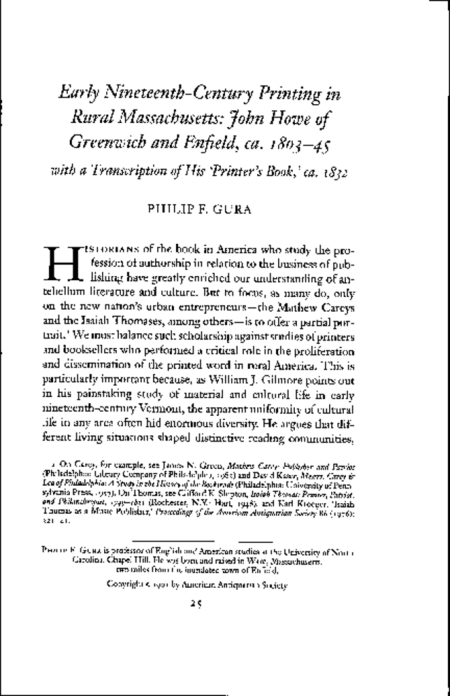Printers and booksellers shaped early-19th-century rural America as much as they shaped urban areas, as the life of John Howe (1783-1845) illustrates. The individual contributions of men like Howe made each town's cultural matrix unique. The author traces cultural life in Greenwich and Enfield, Massachusetts, during these years, drawing on Howe's series of published almanacs. Howe, like many hill-country people, was frequently anticlerical and even opposed acquisitive capitalism, despite his own entrepreneurial energies. The article includes a transcription of John Howe's Printer's Book with the daily entries.
Publication Date
Volume
101
Part
1
Page Range
25-62
Proceedings Genre
